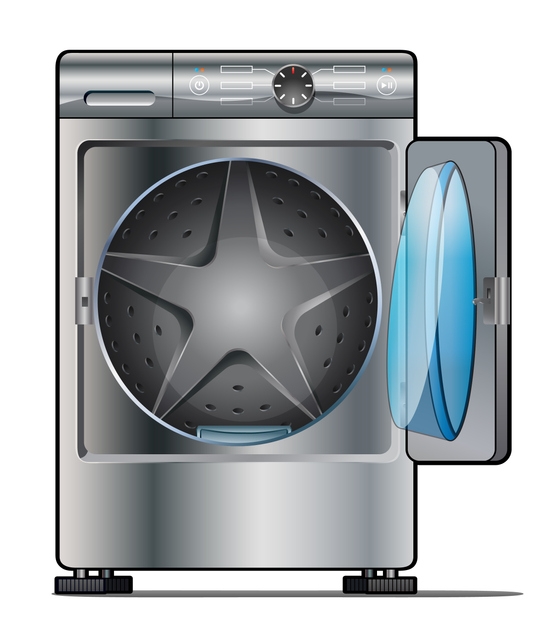You have /5 articles left.
Sign up for a free account or log in.

Istock/chuyn
The calendar years 1981, 2001, 2014 and 2018 may not stand out for you. But a recent image from Twitter should prompt career counselors and others focused on career education to think of those years as a laundry cycle where we wash, rinse, spin and repeat messages about job market prospects for humanities and social science graduate students.
The photo shows book covers from six authors tackling the academic job market. Check out Beyond the Professoriate (#beyondprof) and @drmarenw (L. Maren Wood) for the entire conversation: If you think academics is gonna change, you’re not paying attention.
I don’t own any of the books referenced in the tweet. But my bookshelf has held similar titles on the theme of the academic job market for a decade or so.
Is there an overarching theme to the mashup collection of my bookshelf and the Twitter photo? Yes. And it’s the message would-be scholars and graduate career advisers need to infuse in their guidance to grad students through cycles of one-on-one meetings, thesis proposals and conferences.
Step 1: Wash. The wash cycle first needs to tackle the dirt: a persistent generational gap between what graduate students understand about professional opportunities and institutional reticence about evolving options for humanists and social scientists. Here’s what we might say to graduate students:
- 1981: The job market was sour before you were born, when Ernest R. May and Dorothy G. Blaney published Careers for Humanists.
- 2001: That same job market was still unsteady, but you were a kid, untouched by employment concerns, while Susan Basalla and Maggie Debelius had seen enough to produce a revised edition of So What Are You Going to Do With That?: Finding Careers Outside Academe.
- 2014: Coinciding with your admission to a graduate school, The Unruly Ph.D.: Detours, Departures, and Other Success Stories by Rebecca Peabody appeared.
- 2018: Editors Joseph Fruscione and Kelly J. Baker produced Succeeding Outside the Academy, and the latest generation of graduate students came to realize that the pursuit of an advanced degree is only one component of professional development.
Sounds terrible and depressing, right? But the rinse cycle eliminates more than airing proverbial dirty laundry about graduate programs. An effective rinse might, in fact, lead to renewal and perhaps longevity for advanced humanities study.
Step 2: Rinse and counternarrative. The rinse phase begins its counternarrative in 1981 with Apple’s launch of the Mac and the beginning of the slow disruption of institutional habits requiring research in highly specific locations. No one is nostalgic for a card catalog. (If you’ve never seen a catalog card and a card catalog, take a look here.) Had you been a history graduate student in 1981, your research might have started with an index leading you to a card in the card catalog which you copied because there was no cut-and-paste functionality. Word, WordPerfect and other early applications were new, not readily available, and there was no code-driven interface between researchers, sources and desktops.
But that obviously all started changing after 1981 and even earlier with the development of online resources. Now you go to the Online Computer Library Center and its massive WorldCat, a global network of library collections. WorldCat revealed and documented the location of books, collections and maps held by libraries throughout the world. Previously inaccessible primary sources crossed boundaries of state and nation. A Ph.D. student physically located in New York gained access to collections without always incurring travel costs. In my field, American abolition and slavery, materials like letters and account books housed in digitized archives and data sets generated topics for research. Technology enabled new and distinct options for study.
Step 3: Rinse cycle leads to disruption and opportunity. In 2001, the Xbox hit the market. And even if gaming wasn’t your favorite pastime, iTunes -- also released in 2001 -- let you download and share music from a CD to totally disrupt relationships among artists, producers and fans. Easy downloads increased access to intellectual and creative property; disputes about use and compensation exploded.
Seeing modern life as a research field and not a thematic approach has the potential to liberate humanists from a siloed life of highly specific conferences and few job openings. Imagine a Ph.D. graduate student in history applying her research training to a population or occupation altered by new technology -- or even a novel use of existing technology. Public policy, communications and consulting are just a few of the job fields in need of a historian’s training. The historian brings a mix of cultural and social nuance to these areas. More important, historians are trained to recognize societal disruption. Think about the impact of protease inhibitors on AIDS or even semantic changes in how we communicate since 1981. The young researcher with her skills, knowledge and abilities becomes embedded in the present with an analytical skills to connect disparate sources.
Step 4: Rinse and spin to spin-off. American higher education has always had a utilitarian purpose. My alma mater, the College of William and Mary, initially opened its doors to train ministers. My current employer, Stony Brook University, began as a teachers' college. Even universities with the highest endowments have an origin rooted in a community’s need for progress and intellectual exploration related to further growth.
Stasis was never the goal for advanced education. Remember, the stated mission of historically black research institutions (Howard University, Florida A&M University, Morehouse Medical) includes the development of people and communities. Every annual cohort of fresh humanities and social science scholars needs guidance to reimagine professional development and career options.
Step 5: Repeat and reiterate without redundancy. Delivering the wash/rinse/spin cycle may come from multiple sources. Faculty members can provide data, insights and professional development program ideas from within professional associations. The American Historical Association launched Career Diversity for Historians in 2014 in recognition of expanded definitions of professional opportunities. And @MLAnews from the Modern Language Association tweeted in October 2018, "What can you do with your humanities PhD?" to broaden career visions.
Service in state and local nonprofits is another form of detergent, too. Organizations promoting conservation, arts and culture, voting rights, and other issues thrive when their mission turns into action with the help of people trained in social science and humanistic scholarship. Let’s make professional goals for social science/humanities graduate students more inclusive. Or as E. M. Forster advises in Howards End, “Only connect the prose and the passion … Live in fragments no longer.”








